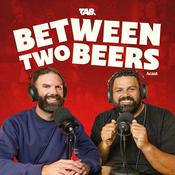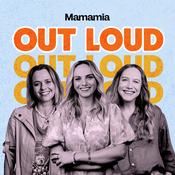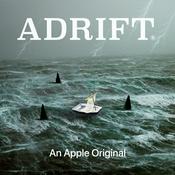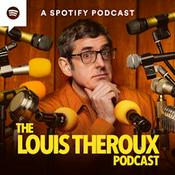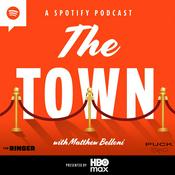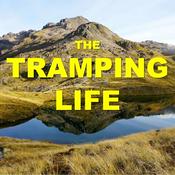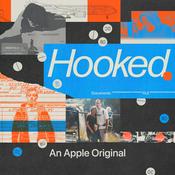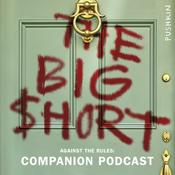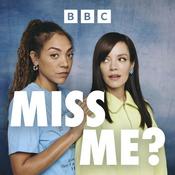Available Episodes
5 of 32
- #29 I'm Not Stupid , I Just Misread Literally EverythingIn this episode, I’m diving into the very real (and often exhausting) struggles of being neurodivergent, especially when it comes to reading and processing information. From school emails to appointment times to following a recipe, I share the everyday mix-ups that happen not because I’m “stupid,” but because my brain is wired differently. I also talk about the power of clearer communication, a bit of self-compassion, and why understanding our own wiring can make life feel a whole lot easier.-Have you gone through a similar journey or are you considering seeking an ADHD diagnosis? Get in touch with me via Instagram, I'd love to chat and continue the conversation.Also, if you wish to show your support for the podcast, you can rate it on Spotify, leave a comment, or review on Apple Podcasts. This way more people can find us and our Divergent AF community can grow. Connect with me:@divergent.a.f--------35:09
- #28 Reply Deficit: I’m Not Ignoring Your Messages, I’m Chronically OverwhelmedIn this episode, I discuss the challenges faced by individuals with ADHD, particularly in communication and maintaining relationships. I share personal anecdotes and a message from an old friend that highlights some of these struggles and misunderstandings. The episode emphasises the importance of acceptance and surrounding oneself with like-minded individuals to navigate the complexities of ADHD, especially during stressful times like the holiday season.-Have you gone through a similar journey or are you considering seeking an ADHD diagnosis? Get in touch with me via Instagram, I'd love to chat and continue the conversation.Also, if you wish to show your support for the podcast, you can rate it on Spotify, leave a comment, or review on Apple Podcasts. This way more people can find us and our Divergent AF community can grow. Connect with me:@divergent.a.f--------26:29
- #27 I’m Not Distracted, I’m Emotionally DysregulatedKicking off Season 3, I dive into the truth behind those “distracted” days, when your emotions hijack your focus and you just can’t shake it. I get real about what it’s like to live with big emotions, how emotional regulation has changed my life, and the messy, human ways I am learning to “wrangle the dragon.” From rage-walks to shower cries, this one’s for every neurodivergent mind trying to stay calm in a chaotic world.-Have you gone through a similar journey or are you considering seeking an ADHD diagnosis? Get in touch with me via Instagram, I'd love to chat and continue the conversation.Also, if you wish to show your support for the podcast, you can rate it on Spotify, leave a comment, or review on Apple Podcasts. This way more people can find us and our Divergent AF community can grow. Connect with me:@divergent.a.f--------32:25
- #27 Love Me or Leave Me: Protecting Your Energy & Becoming UnstoppableIn this season finale episode, I'm getting real about the lessons I've learned over the past year that have transformed me into a more resilient, self-assured person. It hasn't been an easy journey, but I'm now at a place where I'm fiercely protective of my energy and no longer afraid to say 'love me or leave me.'I dive into the importance of setting boundaries, letting go of toxic friendships, and embracing the 'dark side' of my personality. I share how I've learned to spot the difference between true supporters and fake friends, and why I now prioritise the validation of strangers over the judgment of those who've known me longest. Most importantly, I reflect on how hitting rock bottom allowed me to rebuild myself from the ground up, emerging stronger, more self-aware, and truly unstoppable. -Have you gone through a similar journey or are considering seeking an ADHD diagnosis? Get in touch with me via Instagram, I’d love to chat and continue the conversation. Also, if you wish to show your support for the podcast, you can rate it on Spotify, leave a comment, or review on Apple Podcasts. This way more people can find us and our Divergent AF community can grow. Connect with me:Instagram - @divergent.a.f--------49:22
- #26 Intuitive AF: Embracing Our Superpower of Intuition and Inner KnowingIn this episode I reflect on my journey from emotional burnout to confidence and clarity. I share how embracing neurodivergence, particularly deep intuition and sharp pattern recognition that often come with ADHD, has helped me make better decisions and build stronger relationships. This episode is a reminder to trust your instincts even when others don’t understand them, and offers honest insights and practical tips for others navigating similar paths.-Have you gone through a similar journey or are considering seeking an ADHD diagnosis? Get in touch with me via Instagram, I’d love to chat and continue the conversation. Also, if you wish to show your support for the podcast, you can rate it on Spotify, leave a comment, or review on Apple Podcasts. This way more people can find us and our Divergent AF community can grow. Connect with me:Instagram - @divergent.a.f--------37:17
More Society & Culture podcasts
Trending Society & Culture podcasts
About Divergent AF
I’m Selina Thomson — late-diagnosed, ADHD-fueled, and no longer toning it down. Divergent AF is all about oversharing unfiltered life experiences — the chaos, the clarity, and the contradictions of living neurodivergent. We’re cracking open the stuff we usually keep locked in our heads and saying it out loud. No fluff, no filter — just quick wit, real talk, and unapologetic authenticity. You are not too much, the others are not enough.
Podcast websiteListen to Divergent AF, The Ezra Klein Show and many other podcasts from around the world with the radio.net app

Get the free radio.net app
- Stations and podcasts to bookmark
- Stream via Wi-Fi or Bluetooth
- Supports Carplay & Android Auto
- Many other app features
Get the free radio.net app
- Stations and podcasts to bookmark
- Stream via Wi-Fi or Bluetooth
- Supports Carplay & Android Auto
- Many other app features


Divergent AF
Scan code,
download the app,
start listening.
download the app,
start listening.

